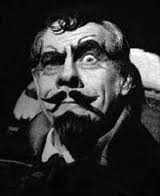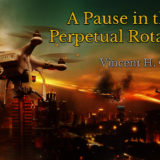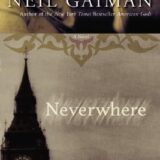 It may seem perverse to fault a work for feeling too perfectly crafted, but the polish of Oni Press’ comics series The Sixth Gun, the sense of every element being in its ideal place, hindered my enjoyment of the series’ first volume, “Cold Dead Fingers”—but that dissonant experience says more about the media age in which we live than The Sixth Gun itself.
It may seem perverse to fault a work for feeling too perfectly crafted, but the polish of Oni Press’ comics series The Sixth Gun, the sense of every element being in its ideal place, hindered my enjoyment of the series’ first volume, “Cold Dead Fingers”—but that dissonant experience says more about the media age in which we live than The Sixth Gun itself.
The Sixth Gun proceeds from a pretty great high concept, the kind that keeps a series humming along at an exciting clip: There are six special guns in post-Civil War America, each one imbued with a mystical power. Five of the guns are in the hands of outlaws and killers loyal to a diabolical Confederate general. The vanished sixth gun has re-appeared in the hands of a young woman who doesn’t know about its powers or twisted history. Drake Sinclair, a man with a dark past, does and he aims to keep the gun out of the hands of the outlaws—by taking it into his.
After that description, you’ll likely have little trouble deciding whether The Sixth Gun merits a look. It may even be a dead shot into your genre sweet spot. If you pick up the series, you’ll be greeted by, as noted, a polished, professional, eminently enjoyable tale of a West gone very Weird that packs action, oats, and horror into a neat package.
Writer Cullen Bunn knows his way around the keyboard. The structure of the series is impeccable: the book contains a strong plot arc, as does each individual issue. The characters, clearly defined in their motivations and goals, have well-established and executed arcs. The villains are credibly threatening while also being entertaining. The seeds of future stories are sprinkle throughout the early tales. The high concept animates the action immediately, dropping us into an all-guns-blazing story, and is open enough to provide the scaffolding for years of storytelling (as proved by the three additional books in the series so far). Artist Brian Hurtt balances a cartoony accessibility with a great sense of action and just the right amount of horror to bring Bunn’s world to life.
And yet: It feels so slick. There’s no roughness to it, no raggedness, none of the life-like messiness that can make a story seem truly alive. And this is where the perversity of my criticism enters. The absence of roughness or raggedness, the sense that the concepts have been fully fleshed out before publication, isn’t usually a flaw. Instead, it’s a sign of good writing, good editing, good art. Despite its obvious qualities, the awards the series has won, and the praise heaped upon it by friends, I had a hard time connecting with The Sixth Gun. For the first half of “Cold Dead Fingers” I could feel myself resisting the story, not wanting to fully give myself over to it. I can’t say when I became immersed in the story or what overcame my resistance, but when it happened, I found myself deeply involved and really enjoying the book.
But I can’t help but wonder if what I’m responding to is the easy-to-discern blueprint that could allow the series to be transplanted to other media (and it almost was; NBC passed on a TV adaptation in May). I don’t mean to imply that Bunn and Hurtt created The Sixth Gun, and have now spent years working on it, in the cynical, unlikely hope that it will be turned into a TV series or movie. I know nothing about their intentions and vanishingly little about them. The series succeeds as a comic. It doesn’t need a “transmedia” reinvention to complete it. But it’s got all the elements that would allow it to succeed as one.
This, perhaps, is the danger of certain kinds of high-concept comics these days. For virtually all people working in comics right now, comics themselves are a fairly low-wage endeavor. Even a relative indie hit like The Sixth Gun sells perhaps a few thousand copies a month. While that would be great business for a $15 book, for a comic book that retails for $4, and returns a bit less than $2 per copy to the publisher, the creative team might see about $1 per copy to split among them (these are just estimates. I don’t know any details of Oni Press’ economics or contracts). While that’s far from nothing, no one is living large on $1,000-$2,000 of income a month. So, for many, comics aren’t the source of riches: licensing the comics to TV, movies, video games, etc. is.
It’s usually pretty easy to spot from quite a distance the comics created specifically just to be sold to other media. You can see the hollow, hungry look in their eyes great distances from the store shelves they stalk. It’s much rarer that a work of obvious quality like The Sixth Gun gives off a similar vibe as its desperate, striving peers. And perhaps that’s the real problem I had in engaging with the series: It felt, at first, too much like a series I’d avoid.
I’m glad I ignored that tingling in my backbrain and allowed myself to enjoy The Sixth Gun for its many excellent qualities. But it’s also an interesting artifact of this media moment that a series being so polished that it could easily be envisioned as succeeding on a larger stage automatically makes it suspect.










